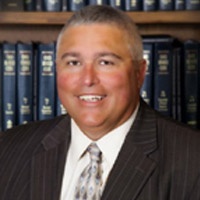Barberton Criminal Lawyer, Ohio
Sponsored Law Firm
-
 x
x

Click For More Info:
-
Washington Law, LLC
P.O. Box 944 Cuyahoga Falls, OH 44223» view mapCriminal Defense Law Experience Makes the Difference
We take the time to research your situation completely and bring about the most effective opportunities ensuring you get the successful outcome you deserve.
800-851-6480
Mark Franklin Graziani
✓ VERIFIEDBankruptcy & Debt, Estate, Lawsuit & Dispute, Criminal, Divorce & Family Law
Mark Graziani is a practicing lawyer in the state of Ohio. He received his J.D. from University of Akron School of Law in 2014 and is licensed in Ohio... (more)
Louis John Gigliotti
✓ VERIFIEDCar Accident, Personal Injury, Criminal, Estate
Louis J. Gigliotti Jr. believes in fighting vigorously for his clients
Lisa Okolish Miller
Federal Appellate Practice, Government, Employee Rights, Criminal
Status: In Good Standing Licensed: 33 Years
George Charles Pappas
Family Law, Medical Malpractice, Criminal, Personal Injury
Status: In Good Standing Licensed: 38 Years
 Michael Washington Cuyahoga Falls, OH
Michael Washington Cuyahoga Falls, OH Practice AreasExpertise
Practice AreasExpertise


